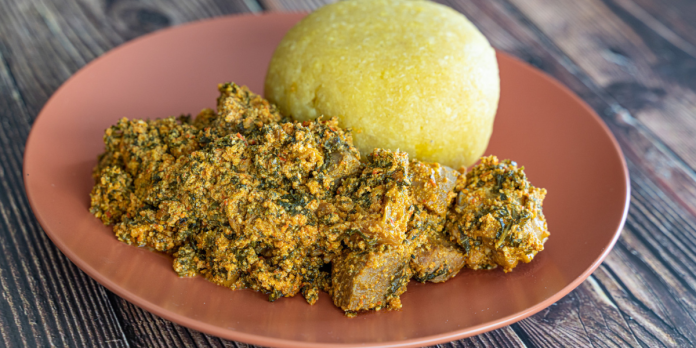Table of Contents
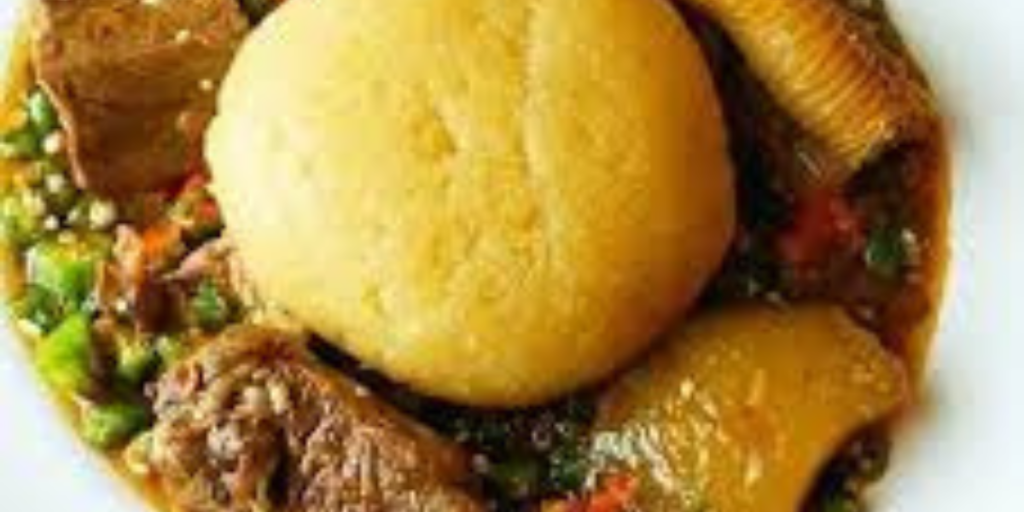
Eba, also known as garri, is a staple food in many West African countries, particularly Nigeria. Made from cassava flour, this versatile dish can be enjoyed with a variety of soups and sauces. While seemingly simple to prepare, mastering the art of making it good requires attention to detail and technique. In this guide, we’ll explore step-by-step instructions on how to make perfect eba every time, along with tips for enhancing its flavor and texture.
Understanding the Ingredients:
Before delving into the process of cooking it, it’s essential to understand the primary ingredient: cassava flour. Cassava flour is derived from the cassava plant, a root vegetable commonly found in tropical regions. It is gluten-free and rich in carbohydrates, making it a nutritious dietary staple.
A Fisherman Soup Recipe That’s a Catch! best of 2024
Choosing the Right Cassava Flour (Garri):
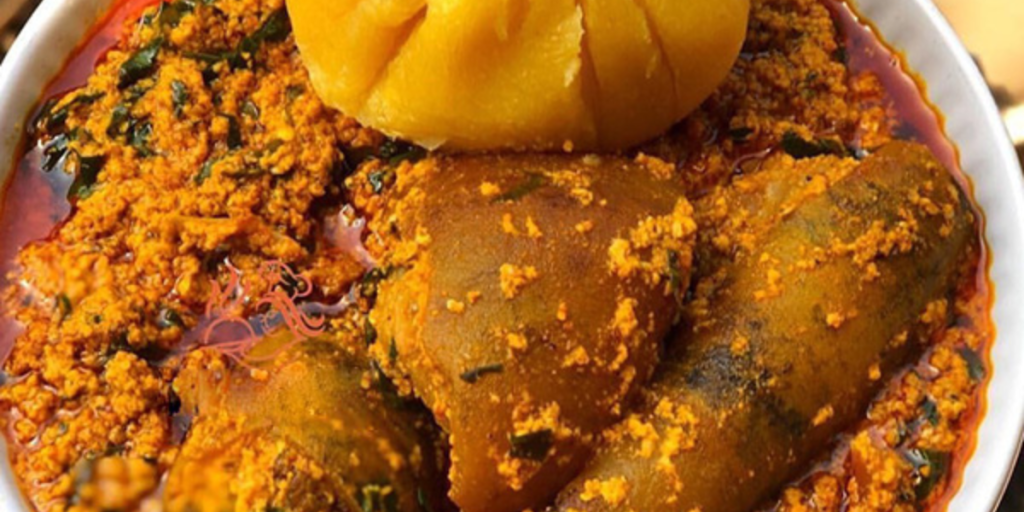
Not all cassava flours are created equal. When selecting cassava flour for making eba, opt for a high-quality, finely ground variety. Look for flour that is light in color and free from any lumps or impurities. This will ensure a smooth and consistent texture in your eba.
Proper Measurement:
Achieving the perfect consistency in the masterpiece relies heavily on accurate measurements. Start by measuring out the desired amount of cassava flour using a kitchen scale or measuring cups. A typical ratio is one part cassava flour to two parts water, but this can be adjusted based on personal preference.
Best Nigerian Fisherman Soup Ingredient in 2024
Boiling Water:
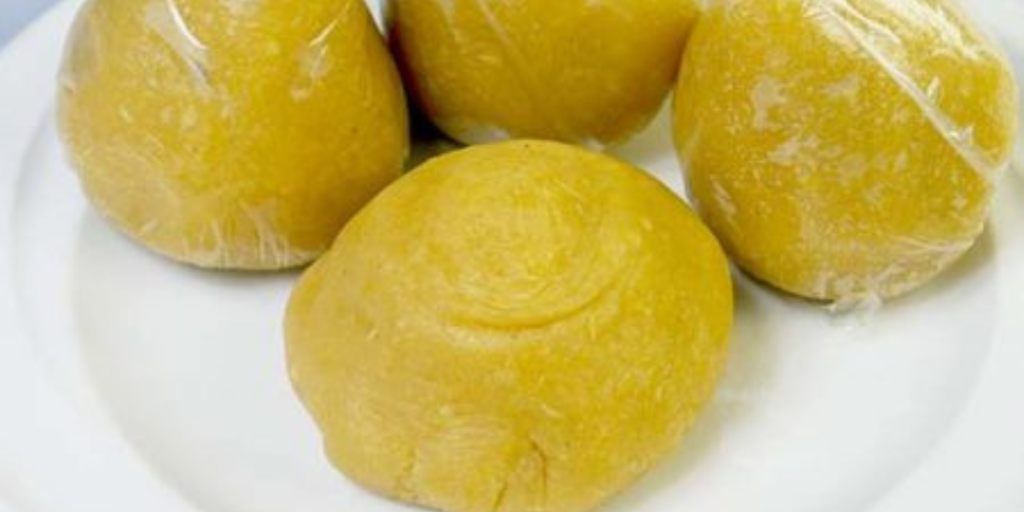
The key to smooth eba lies in the temperature of the water. Bring water to a rolling boil in a pot or kettle. The water should be hot enough to cook the cassava flour thoroughly but not so hot that it scalds the flour upon contact.
Adding Cassava Flour to Water:
Once the water reaches a boil, gradually add the cassava flour to the pot while stirring continuously with a wooden spoon or spatula. It’s essential to add the flour slowly to prevent clumping and ensure a smooth consistency. Keep stirring until the mixture thickens and begins to pull away from the sides of the pot.
Best Fisherman Soup Recipe Nigeria. Best 2024
Consistency is Key To make A Good Eba:
Achieving the perfect consistency in eba is a delicate balance. The mixture should be smooth and free from lumps, with a slightly elastic texture. If the eba is too thick, gradually add more hot water until the desired consistency is reached. Conversely, if it’s too thin, add more cassava flour and continue stirring until it thickens.
Proper Mixing Technique:
The secret to smooth success lies in proper mixing technique. Use a circular motion to stir the mixture continuously, making sure to scrape the bottom and sides of the pot to prevent sticking. This helps distribute the heat evenly and ensures uniform cooking throughout.
Patience is a Virtue:
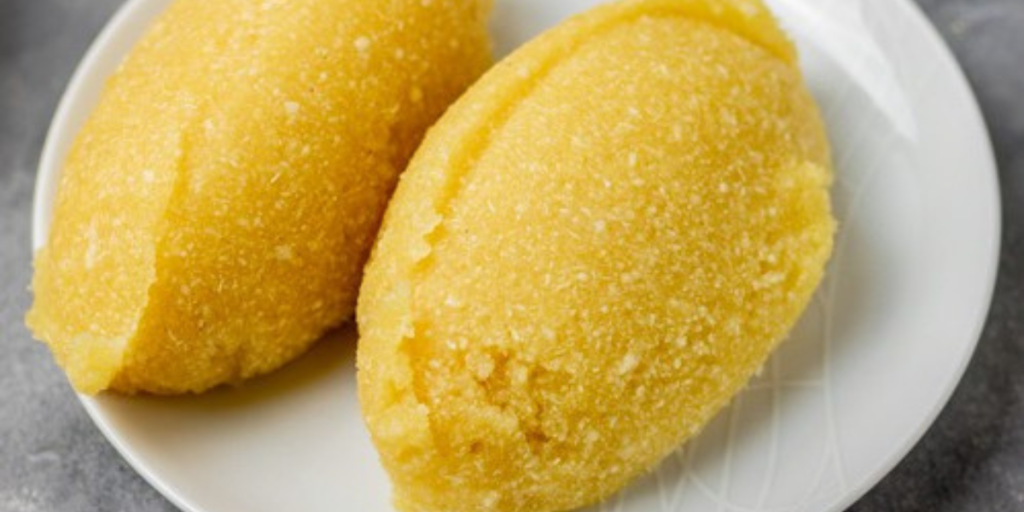
Making good eba requires patience and attention to detail. Resist the urge to rush the cooking process, as this can result in uneven texture and flavor. Allow the eba to simmer gently over low heat, stirring occasionally, until it reaches the desired consistency.
What is Fisherman Soup made of ? Nigerian Best of 2024.
Seasoning to Taste:
While eba is traditionally served plain, you can enhance its flavor by adding a pinch of salt or seasoning to taste. Experiment with different seasonings such as garlic powder, onion powder, or chili flakes to suit your preferences. Just remember to add seasonings sparingly, as they can overpower the delicate flavor of the cassava flour.
Serving Suggestions:
Eba is incredibly versatile and pairs well with a wide range of soups and sauces. Traditional accompaniments include okra soup, egusi soup, and vegetable soup. For a twist on tradition, try serving eba with grilled fish or meat stew for a hearty and satisfying meal.
Storage and Reheating:
Leftover eba can be stored in an airtight container in the refrigerator for up to three days. To reheat, simply transfer the eba to a microwave-safe dish and heat on high for 1-2 minutes, or until warmed through. Alternatively, you can reheat eba on the stovetop by adding a splash of water to prevent it from drying out.
Mastering the art of making good eba is a rewarding endeavor that requires practice, patience, and attention to detail. By following the step-by-step instructions outlined in this guide, you can create delicious eba that is sure to impress family and friends alike. Whether enjoyed on its own or paired with your favorite soup or sauce, eba is a versatile and satisfying dish that is sure to become a staple in your culinary repertoire.
In conclusion, mastering the art of preparing a perfect serving of Eba, hailed as one of Nigeria’s culinary gems in 2024, encapsulates the essence of simplicity, tradition, and taste. This beloved staple of Nigerian cuisine is more than just a meal; it’s a cultural icon, revered for its versatility, nutritional value, and comforting familiarity.
To craft a flawless batch of Eba, one must begin with the finest quality garri, carefully selected and processed to ensure optimal texture and flavor. With a deft hand and keen eye, the garri is gradually mixed with hot water, skillfully kneaded into a smooth, elastic dough, and shaped into fluffy mounds of pure satisfaction.
But the true secret to making exceptional Eba lies not just in the ingredients, but in the technique. It’s a delicate balance of timing and intuition, knowing precisely when to add the water, when to knead, and when to stop, allowing the dough to achieve the perfect consistency—firm yet yielding, with a subtle hint of nuttiness that tantalizes the taste buds.
As the Eba takes shape, it becomes more than just food; it becomes a labor of love, a testament to the time-honored traditions and culinary heritage that have been passed down through generations. With each smooth motion of the hand, one can feel the connection to Nigeria’s rich cultural tapestry, a bond that transcends time and space.
But Eba is not just a dish; it’s a symbol of resilience and resourcefulness, reflecting the ingenuity and creativity of Nigerian cooks who have mastered the art of transforming humble ingredients into culinary delights. Whether enjoyed alone or paired with a hearty soup or stew, Eba nourishes both body and soul, providing sustenance and comfort in equal measure.
In the bustling kitchens and vibrant markets of Nigeria, Eba remains a steadfast symbol of community, connection, and shared heritage. So, as we savor each spoonful of this beloved staple, let us not only delight in its simplicity and flavor but also honor the generations of cooks who have kept its legacy alive, ensuring that it remains a cherished part of Nigerian culinary tradition for years to come.
















